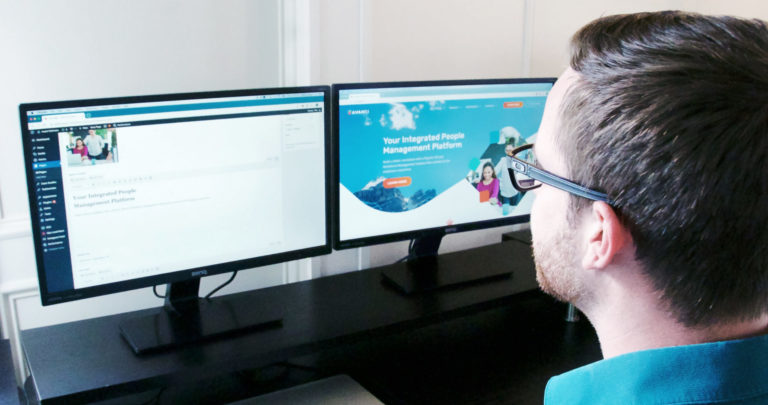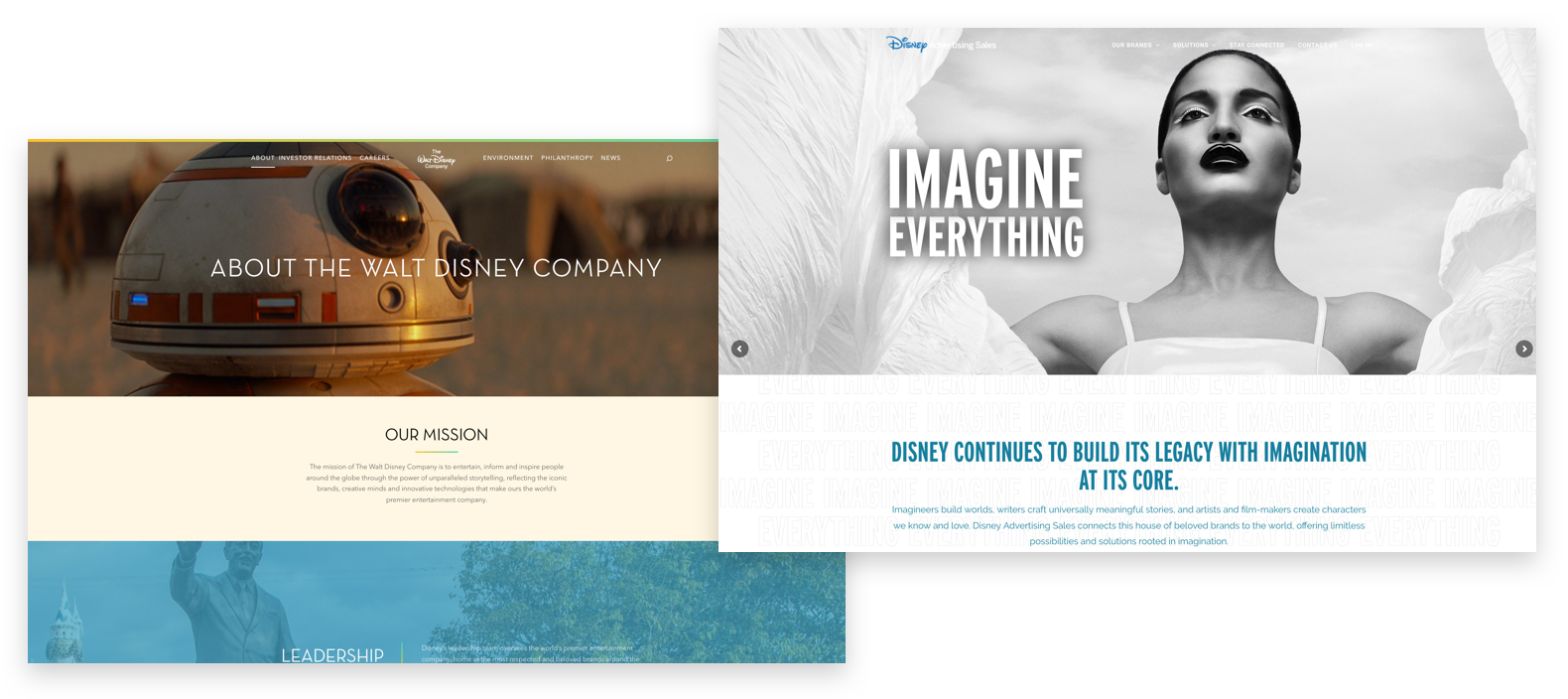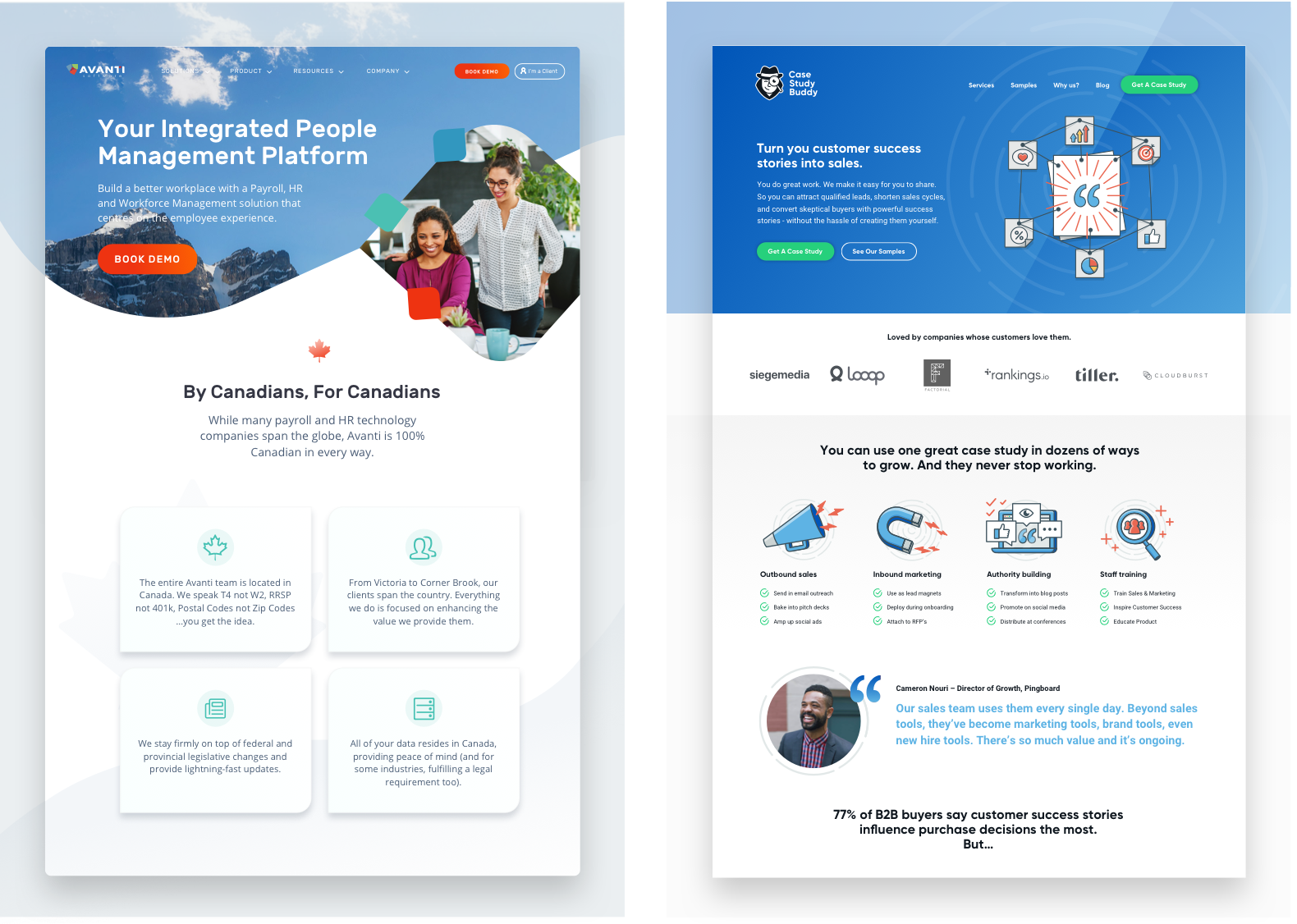6 common WordPress myths and why they aren’t true

WordPress is one of the world’s most popular and powerful platforms for building websites.
Over time, WordPress has grown from a Content Management System (CMS) mostly associated with the internet’s initial wave of personal blogs to a platform that powers over 60 million websites worldwide. At Tiller we regularly use WordPress when we develop websites for all kinds of clients across all sorts of industries.
Despite its ubiquity, there are still many oft-repeated myths about WordPress. This article is designed to debunk some of those myths and give you a clearer picture about what WordPress does and why it can be so useful for your business.
Myth #1: WordPress is just for blogging
Thousands of early blogs were built on WordPress and much of the initial focus of the platform was to serve bloggers. Many of these bloggers just wanted to share their lives with an online community. They weren’t particularly tech-savvy. So the platform was simple and easy to use.
Over time, WordPress expanded its functionality and offerings without losing the overt simplicity and usability of its original design. Because the site was primarily designed for those bloggers, its foundational elements are still straightforward and easy to use for publishers – be they individuals or businesses. That means WordPress is a good fit for many small, medium and even large size businesses, especially if those companies don’t have or want to maintain in-house development expertise.
With very limited instruction, most business users are able to effectively use WordPress to update and publish new content to their sites, add photos, and explore a range of analytics with third party tools. And this all happens inside an environment that is optimized for a mobile-first world and performs well in search engines like Google.
Ultimately, unless your business has enormously complicated technical needs, WordPress offers a great platform and CMS that will allow you to build an attractive, stable and highly manageable website that can grow as your business grows.
Myth #2: WordPress is just for small businesses
This one might surprise you.
We’ve established how WordPress is valuable for bloggers and small businesses but the truth is that many large enterprise sites are actually built on WordPress too.
Major media companies and even governments of sovereign nations use WordPress. Here are just a few sites you might be surprised to find are built on the platform:

One key takeaway: a company’s in-house creative team or web development and design agency won’t be hampered by WordPress when they design a website. WordPress is powerful, flexible and adaptable enough that even the most well-known brands on the planet don’t have to compromise their brand standards when they bring their companies to life on the platform.
Another takeaway is that all three of the above companies are demanding. They require sites that offer enterprise level performance. That means a platform that is scalable, secure and reliable. Anything less is unacceptable. And WordPress delivers in all three of those areas. At any given moment, the platform is powering millions of websites around the world. Many of these have complex page structures and hierarchies and the need to handle masses of global traffic that can surge at any time. And all of them need rock solid protection against hacking and breaches.
WordPress continues to deliver on all these fronts for enterprise clients, just like it does for small businesses, just like it does for bloggers.
This is why it continues to see greater adoption in the market.
Myth #3: WordPress doesn’t work for ecommerce
WordPress isn’t Shopify, which is custom-designed for ecommerce, but it’s very capable of handling ecommerce if your business requires it. There are a variety of available plug-ins that agencies who provide web development services can use to enable ecommerce on a WordPress site.
The primary way to use WordPress for ecommerce is by deploying WooCommerce, which is the ecommerce extension for the platform. It’s actually the most widely used ecommerce platform in the world because it’s tied to WordPress. So when you choose WooCommerce, you’re choosing something that has hundreds of thousands of existing users. It’s highly intuitive, easy to use – and, of course, the basic service is free (premium plugins can support more complex needs).
WordPress is especially well-suited to be the ecommerce platform for businesses that need both a website that delivers core marketing and company information as well as ecommerce offerings. In fact, if you already have an existing website that delivers marketing and company information to your users, WordPress is a great solution. It will be far cheaper, faster and cause fewer hassles for you to add ecommerce capabilities to WordPress rather than migrate all your content over to Shopify or another competing ecommerce platform.
The argument for using WordPress for ecommerce is also amplified if you have a website development team building or updating your site for you. They will have the ability to customize the platform to deliver exactly what you need.
Myth #4: WordPress is difficult to use
Not true.
But we’d understand if you thought that was the case.
WordPress is so powerful and provides so many options – in templates/themes, in back-end functionality and other areas – that to first use it can be intimidating. There’s just so much to consider! But that’s just because it’s so customizable. A good website development team will help guide clients through the process of understanding and making choices with WordPress, so they get all of the benefits of what the platform offers, without having to deal with any of the stuff that seems overwhelming. In fact a good website development team will just make choices to address client goals, without burdening them with all the choices available in the platform.
When we develop websites for clients, one of the questions they often have is ‘Will I have the ability to do the post-launch content management myself? Is it going to be confusing?’ So we offer some basic training for clients and ongoing support for those that want additional help. But almost invariably, after we build and launch a client website and they’ve worked with it for awhile, they come back with the same feedback: ‘This is so easy. We love it.’
Part of this is just the way we approach WordPress at Tiller.
We ensure that when a client goes in to update some copy on their site after it’s live, when they want to add a new photo or post a blog, there’s almost no way they can ‘break’ the site. So they always feel safe working in the back-end (CMS) of the website. They soon find that all those options that seemed so intimidating when they first started researching platforms now seem so intuitive and streamlined.
And of course, if our clients ever have any questions or need more sophisticated development work done post-launch – we’re here to help.

Myth #6: WordPress sites are easy to hack
Any website on any platform can be hacked. And certainly WordPress is more secure now than it was when it first launched a decade-and-a-half ago. That’s not an accident. There’s a dedicated team that works to improve and enhance its security on a regular basis, just like any platform. For example, WordPress rejects weak passwords. And because WordPress is open source software, there is effectively a small army of developers all around the world who are able to identify any gaps or vulnerabilities in its security and create fixes for it.
At Tiller, our development team always goes out of the way to ensure security for all sites we build, including those on WordPress. By incorporating reliable plug-ins sourced through reliable channels, we can get the software’s security up to or beyond the levels of any other platforms we could use. For example, we periodically might use something like Wordfence for our clients. It’s effectively security monitoring agent for your website.
The bottom line? No platform is 100% secure. But WordPress powers every kind of site imaginable. So its security protocols and protections are highly trustworthy. That’s why we make use of it with so many of our clients. See how in our website design case study collection.



